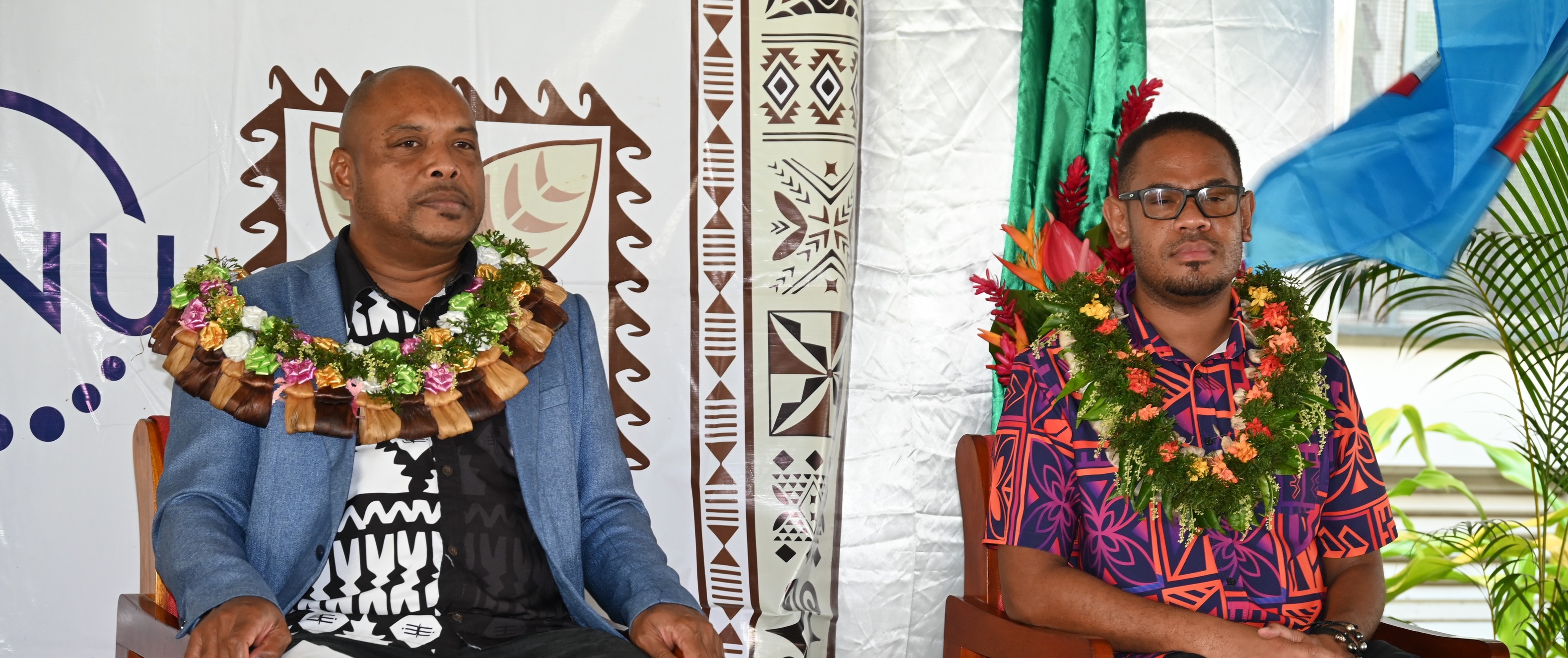PACIFIC PLANT DOCTORS GRADUATE FROM REGIONAL TRAINING
July 19, 2025

The Ministry of Agriculture and Waterways proudly celebrated the graduation of participants from the 2025 Plant Health Clinic training, supported through regional and international collaboration.
The three-week intensive training, hosted at FNU’s Koronivia campus, brought together agricultural extension officers and plant health practitioners from Fiji, Papua New Guinea, Solomon Islands, Vanuatu, Tonga, and Samoa.
This training was made possible through the generous contribution of ACIAR Project HORT/2025/100, the University of QLD, the University of Tasmania, the Ministry of Agriculture and Waterways, the University of Goroka (PNG) and the Fiji National University.
This year’s cohort also included representatives from two Non-Government Organizations, Live and Learn (Tonga and Fiji) and Kostom Garden Association (Solomon Islands), highlighting the region’s commitment to inclusive and community-driven agricultural development.
Chief Guest the Deputy Secretary for Agricultural Development Dr. Tekini Nakidakida, commended the participants for their dedication and emphasized the importance of the training in building regional resilience.
“It is a pleasure to be here witnessing the graduation of Plant Health Doctors,” said Dr. Nakidakida. “The 2025 Plant Health Clinic short course is a crucial development tool as it builds the capacity of agriculture staff in the region.”
Plant Health Clinics are a growing global movement, offering farmers accessible support in diagnosing plant diseases and receiving tailored recommendations.
First pioneered in Bolivia over two decades ago, PHCs have expanded across the Pacific following a successful pilot in 2012.
They now operate in six Pacific Island countries, providing farmers with practical, low-cost solutions to pest and disease challenges.
“Everyone has heard of human clinics and those for animals, especially for our pets and livestock,” Dr. Nakidakida said.
“But until recently, there were few for plants. This is odd, as plants sustain us all and losses from pests and diseases can be as much as 40%, according to the FAO.”
The training focused on plant health diagnostics, integrated pest and disease management, and sustainable crop protection practices. Participants engaged in hands-on learning, shared experiences across borders, and explored ways to strengthen national PHC programs.
“Early detection is key,” Dr.
Nakidakida emphasized. “With a deeper understanding of plant diseases, we can
address issues that may be economically devastating. This training has promoted
regional collaboration and strengthened skills essential for resilient
agriculture.”
FNU is the first university in the region to offer this intensive training on PHCs.
The course was made possible through the generous support of ACIAR Project HORT/2025/100, titled “Building mechanisms to respond to and manage emerging pests and diseases of horticultural crops in the Pacific Islands.”
“To all the participants, our friends and colleagues from PNG, Solomon Islands, Vanuatu, Tonga, Samoa, and Fiji, you were invited because of your experience with plant health clinics. I hope that during your training, you have enhanced your knowledge, suggested improvements, and will return to your countries ready to boost and sustain your national programs.”
“Congratulations on completing your three-week training on Plant Health Clinics, your dedication and hard work are truly commendable, your newfound knowledge will contribute significantly to our communities, ensuring sustainable farming practices and food security.”
As the Pacific continues to face the impacts of climate change, Dr. Nakidakida urged participants to remain forward-thinking.
“The region should continue to build resilience. We are always at the forefront of climate impacts and must learn to live with it, mindset change is key, climate adaptation woven into development can save us a lot.”
The graduation ceremony marked not only the completion of a training program, but the strengthening of a regional network of plant doctors, equipped to safeguard crops, support farmers, and build a more resilient agricultural future for the Pacific.
ENDS
